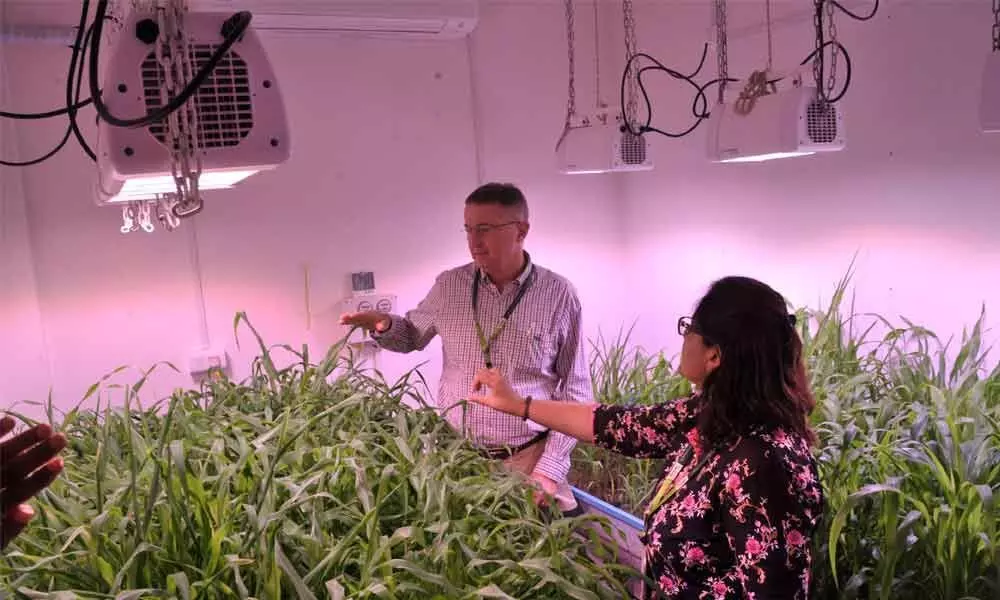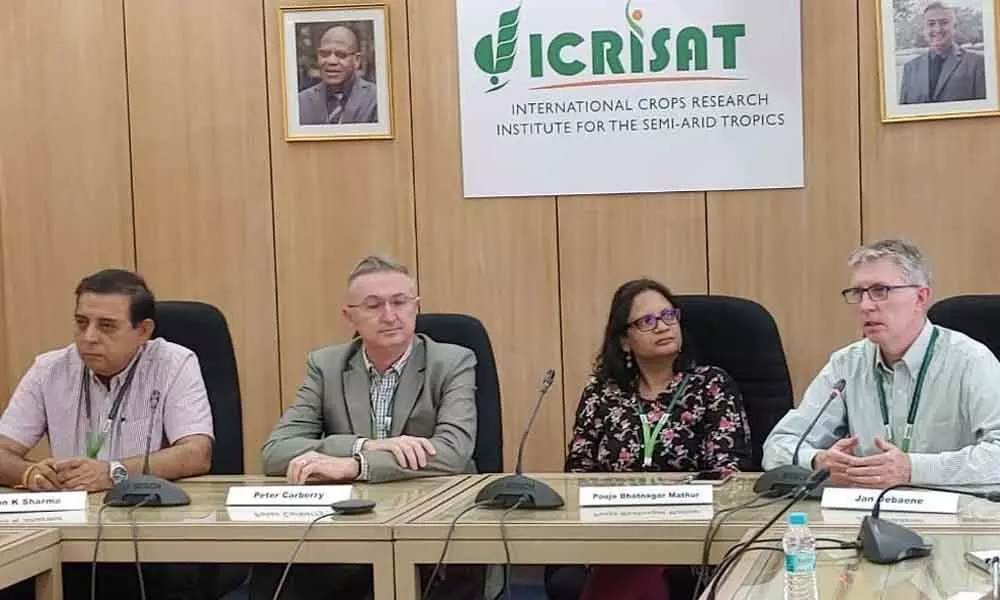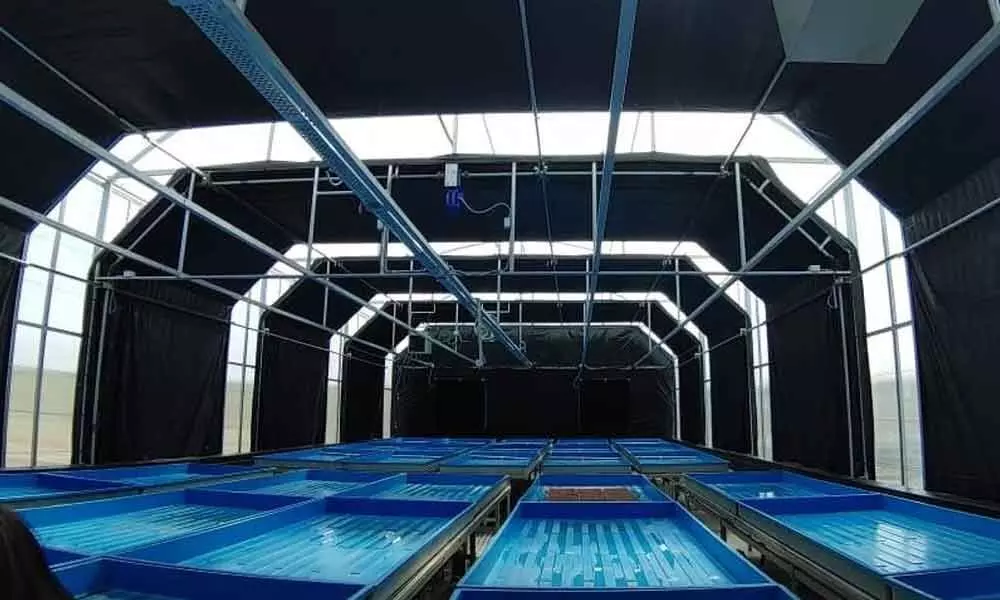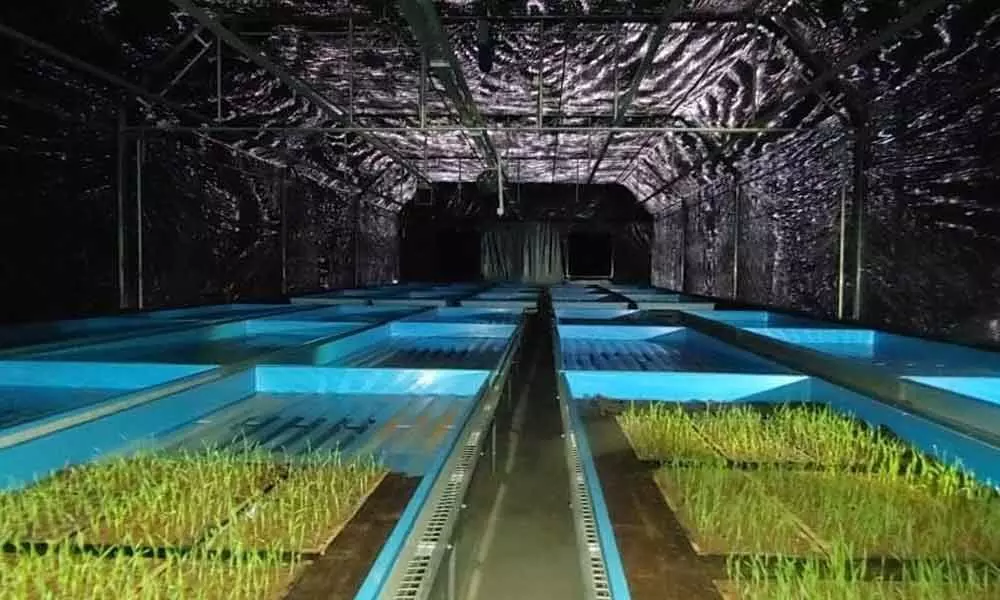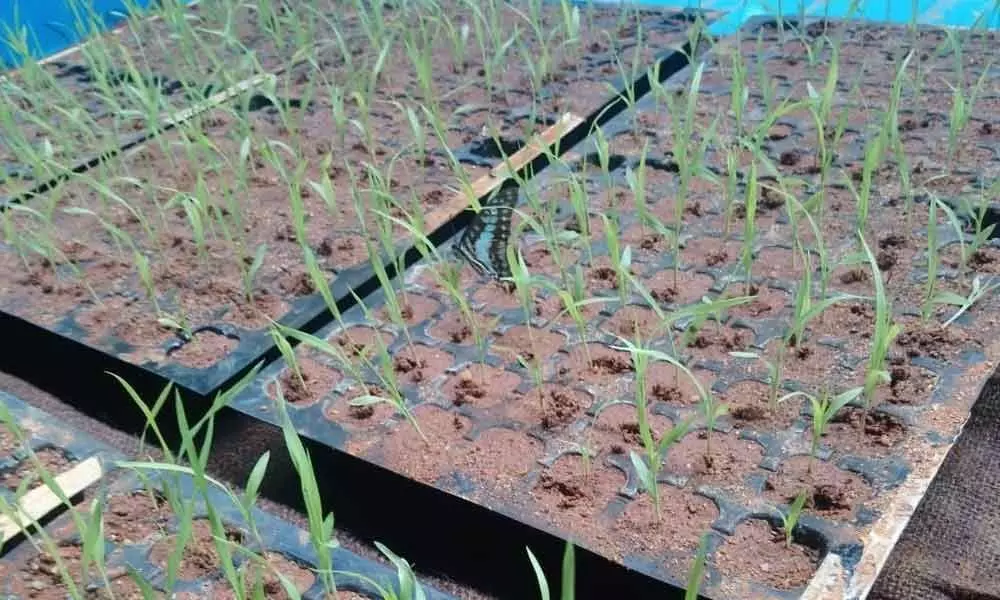Live
- Ajit Pawar elected as leader of NCP in Maha Assembly
- Love, murder, cover-up: Married man kills live-in partner, sets body on fire
- Kishida launches new group within ruling LDP: Report
- Shreya Ghoshal to perform in 'Tripura Tourism Promo Fest'
- Congress lost its stature as brand, now just a regional party: Kangana
- Abu Dhabi T10: New York Strikers reflect on dominant bowling display in win over Bangla Tigers
- VHP Karnataka Resolves to Oppose Alleged Land Encroachments Under Wakf Board
- Formula 1: Verstappen claims fourth drivers' title as Russell leads Mercedes 1-2 in Las Vegas
- Air quality in Kolkata, Howrah deteriorates
- IPL 2025 Auction: Aim is to make Punjab Kings one of the powerhouses, says head coach Ricky Ponting
Just In
Breeding new crop variety in a jiffy:ICRISAT

Hyderabad: Efforts to modernise crop-breeding took a giant leap today with the unveiling of International Crops Research Institute for the Semi Arid Tropics (ICRISAT) new facility, RapidGen that promises to accelerate plant lifecycle in light, temperature and humidity-controlled conditions. The state-of-the-art facility would significantly lower time and the cost of crop varietal development. Presently, breeding a new crop variety takes about a decade or more, with six or seven years spent in seasonal generational advancements to arrive at the elite lines that go for testing and release as varieties.
RapidGen will shorten the six-seven year window significantly. When used with the full suite of breeding acceleration techniques, RapidGen can reduce the breeding cycle by an estimated 40% for most crops.
"Climate and exponential population growth have to be considered for rapid development of improved food crops is essential. But we also need to look at what has been achieved to sustain food security and achieve nutrition security," said Dr Peter Carberry, Director General, ICRISAT. "With facilities like RapidGen, crop breeders can overcome the limitations of seasons and photoperiod to develop the elite generations in fraction of the time and cost it would take if done in fields."
Speaking to THI, Scientist Jan Debaene said "Rapid Generation Advancement is not new; the focus is on the scale of plants this time. The aim is to generate thousands of plants in a short period. A farmer can produce one generation of limited chick pea in one season, here, using the technology of light deprivation chambers we are producing the required season for the crop to grow, and also by utilizing the space optimization method to grow crop in large scale in short time.
RapidGen, is comprised of three installations—testbed optimization chambers, lighting controlled greenhouse bays, and a temperature-regulated light deprivation polyhouse. Depending on the crop and the requirements of breeding programs, researchers can scale-up their activities in either controlled greenhouse bays or in the polyhouse facility after using the testbeds for protocol development. Largest of the three installations, the polyhouse can be used for over 30,000 crosses in one go. Each of the installations are equipped to finely regulate temperature, light and humidity. "Every crop is unique in the way it responds to a set of environmental parameters. We have to mimic the right set of conditions within these closed installations to convince a plant to grow faster at high density and to reproduce quickly. These set of conditions, which we call 'recipes', are crop specific-protocols to hasten the crop cycle while producing healthy, viable seeds," said Dr Pooja Bhatnagar-Mathur, Theme Leader at ICRISAT.
Dr Kiran K Sharma, Deputy Director General-Research, ICRISAT, informed that protocols for chickpea, groundnut, pearl millet and sorghum are already in place. "Protocol development is the first step before a breeding program can take advantage of facilities like RapidGen. With their development, our partners and collaborators, both public and private, can integrated these modern techniques into their breeding programs." ICRISAT is collaborating withseveral agricultural research institutes under Indian Council of Agricultural Research (ICAR), State Agriculture Universities and industry partners to mainstream rapid cycling of the crops for which protocols have already been standardized. "Through RapidGen, we are attempting to herald a new era of breeding in agriculture research systems across the world. Moving forward, rapid cycling will be integrated with early generation testing using advanced technologies to take further advantages of modern methods to increase genetic gains," said Dr Jan Debaene, Global Head-Breeding, ICRISAT.
"RapidGen is a case of many firsts, including a first for CGIAR, the group of research institutions of which ICRISAT is a part of, and which is the world's largest agriculture research system striving to ensure a resilient, food and nutrition secure future," he further said.
Advantages
• It normally takes 6-7 years to release a new variety but with RapidGen, breeding cycle can be cut by an estimated 40% for most crops
• Focus on space optimisation and quantity production
• Utilising RapidGen process, one can grow six crops of chickpeas in a year, millets up to 4 seasons in year, groundnuts up to 4 seasons in a year
How it is done
• Researchers can scale up their activities in either controlled greenhouse bays or in the polyhouse facility after using the testbeds for protocol development
• Largest of the three installations, the polyhouse can be used for over
30,000 crosses in one go
• Each installation is equipped to finely regulate temperature, light, humidity
"With facilities like RapidGen, crop breeders can overcome the limitations of seasons and photoperiod to develop elite generations in fraction of the time and cost it would take if done in fields."
- Dr Peter Carberry,
Director General, ICRISAT

© 2024 Hyderabad Media House Limited/The Hans India. All rights reserved. Powered by hocalwire.com




